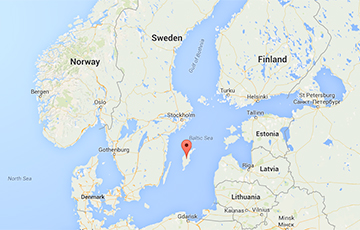Russia Is Forcing One More Country To Prepare For War
14- 26.05.2024, 20:26
- 62,120

Provocations have become more frequent.
Russia is forcing another country to prepare for war. Concerns were further heightened when Russia published a document citing the need to redefine maritime boundaries in the Gulf of Finland.
Gotland holds a strategically important location of being in the middle of the Baltic Sea (halfway between Sweden and Estonia) and only 300 km from where Russia’s Baltic fleet is based. Sweden joining NATO and giving it access to Gotland has significantly increased the alliance’s ability to deploy and sustain its forces in the Baltic Sea region, and this could make a decisive difference in the defence of Estonia, Latvia, Lithuania, Finland and Poland.
Due to its strategic importance, Sweden maintained a large military presence on the island for most of the Cold War. However, Gotland was demilitarized in 2005 to promote peace and cooperation in the Baltic region.
This gesture of goodwill was immediately tested by the Russians as, not long after doing so, Russian men who did not fit the usual Gotland tourist profile, began regularly visiting the island.
After Russia invaded Crimea in 2014, Sweden took significant steps to defend itself, reintroducing 150 permanent troops to the island in 2016. By 2018, Sweden had expanded the number of permanently placed troops to 400, equipping them with CV90 armoured vehicles and Leopard 2 tanks. Air defence systems were also reactivated by 2021.
Russia's full-scale invasion of Ukraine in 2022 led to additional reinforcements, exercises, and investments in Gotland's defence totaling $160 million. In April 2023, Sweden conducted its largest military exercise in 25 years together with Polish and British troops on the island.
The geographical distances in the Baltics are small, and if Russia had seized Gotland in a crisis, it could have dominated the Baltic Sea region. This will make it very difficult for the West to provide reinforcements to the Baltic countries by sea or air.
It's not just about Sweden. Lithuania borders both the Russian enclave of Kaliningrad (which itself is becoming increasingly militarized) and Belarus, and is concerned that it could be attacked and physically isolated from the rest of the Baltics.
In the usual Moscow manner, when an online document on the change of Russian maritime borders was noticed in the West, the Kremlin countered that it had any plans to do so. But there was no explanation from Russian officials as to why the ministry's proposal was removed from the government portal.
When Baltic leaders sought clarification, Lithuania warned that this was at least another Russian intimidation tactic. Estonian Prime Minister Kaja Kallas went further, saying that Russia is waging a "shadow war" with the West.
Many Russian tankers in the Baltic Sea refuse pilotage, the practice of controlling the movement of ships with the help of visual or electronic observations, even while navigating the narrow Great Belt of Denmark.
All these provocations occur only beyond 12 nautical miles (the country's territorial waters), which makes it impossible for Sweden to do anything about it, since these commercial tankers are not part of the official Russian Navy. The Swedish Navy has warned that Russia is likely using these oil tankers for sabotage, reconnaissance and espionage.
In connection with such events, the Prime Minister of Sweden informed citizens in March that they should be ready for war.
In the past, Gotland was a deterrent to Soviet expansion. But the current Russia under Putin does not seem to be so easy to contain, and it is more susceptible to risk. It is unclear whether these provocations are part of a Russian shadow war aimed at psychologically dividing and terrorizing the West, or whether they are a prelude to a real war that is sure to break out if Russia attacks Gotland.
Since Sweden is now a member of NATO, this means that all members must stand up for it if it faces an attack. Sweden itself has a state-of-the-art world-class submarine fleet and Air Force, as well as a technologically advanced defence base. However, it is difficult to predict whether this will be enough to contain the conflict with Russia.
Natasha Lindstaedt, The Conversation










